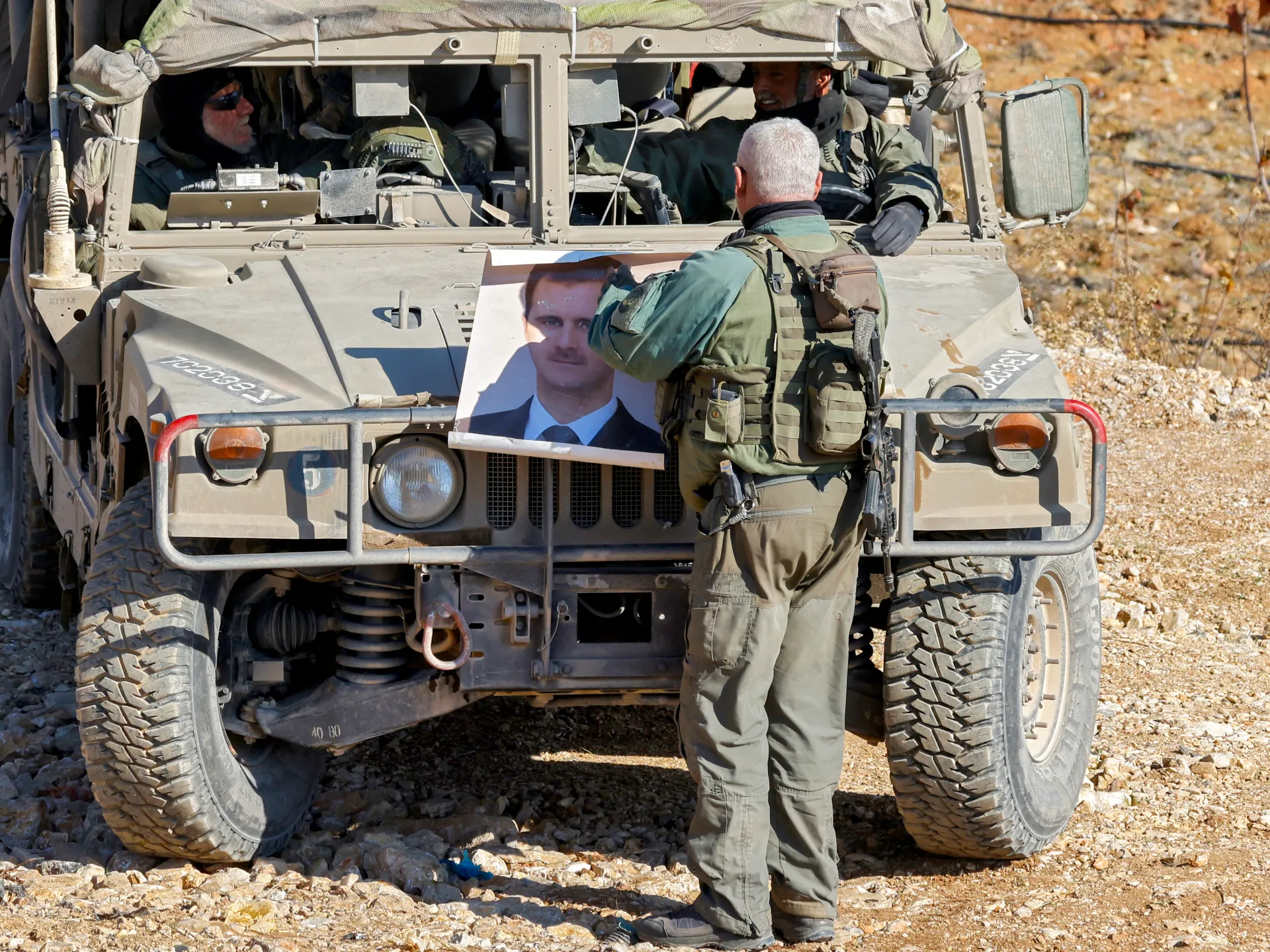Leaked calls reveal plot by al-Assad regime officers to destabilise Syria | Syria’s War News
An Al Jazeera Arabic investigation obtains recordings of Suheil al-Hassan discussing Israeli support, regrouping efforts.
An Al Jazeera Arabic investigation has uncovered a plot by the aides of ousted leader Bashar al-Assad to destabilise Syria, featuring leaked recordings that suggest coordination with Israel.
The revelations, set to be broadcast on the programme Al-Mutahari, or The Investigator, on Wednesday evening, are based on more than 74 hours of leaked audio recordings and hundreds of pages of documents obtained in the investigation.
The leaks implicate al-Assad’s high-ranking officers, specifically Suheil al-Hassan, the brigadier-general who commanded the notorious Quwwat al-Nimr (Tiger Forces), an elite unit in the former regime’s army.
‘Israel will stand with you’
The investigation uncovers attempts by these officers to regroup, gather funding, and secure weapons to undermine stability in the country following the ousting of al-Assad.
In one of the most significant recordings, a source — identified in the leaks as a hacker or intermediary — is heard assuring al-Hassan of Israeli backing.
“The State of Israel, with all its capabilities, will stand with you,” the source tells al-Hassan.
“There is a level higher than me, Mr Rami is the one who coordinates,” al-Hassan is heard saying. “And I have dangerous intelligence information.”
It has been a year since a lightning offensive by allied rebel groups, led by current President Ahmed al-Sharaa, ended the Assad dynasty’s 54-year reign, forcing Bashar al-Assad into Russian exile.
Yet, as the regime collapsed, Israel seized on the instability by significantly escalating its military campaign in Syria, targeting much of its neighbour’s military infrastructure, including main airports, air defence systems, fighter planes, and other strategic facilities, as well as occupying more of Syria’s Golan Heights, and bombing the capital, Damascus, in July.
Over the past year, Israel has launched more than 600 air, drone or artillery attacks across Syria, averaging nearly two a day, according to a tally by the Armed Conflict Location and Event Data (ACLED).
‘The feeling of the coast’
The recordings also feature Ghiath Dalla, a former brigadier-general in al-Assad’s forces, who appears to validate al-Hassan’s position as a representative of the regime’s traditional strongholds.
“My Master, Suheil the Tiger, spoke the feeling of the whole mountain and the whole coast,” Dalla is heard saying, referring to the coastal and mountainous regions that were long considered the heartland of support for the al-Assad family.
The leaked conversations also capture al-Hassan expressing disdain for current developments, referred to as “the flood”.
“Our prayers for you all are that this foolishness, this evil, and this blackness called the flood ends,” al-Hassan says in the recording.
Investigation to air
The full extent of the plot will be detailed in the upcoming episode of The Investigator, hosted by Jamal el-Maliki.
Parts of the leaks are airing on Al Jazeera’s platforms on Wednesday, with the complete investigation scheduled for release in mid-January.

